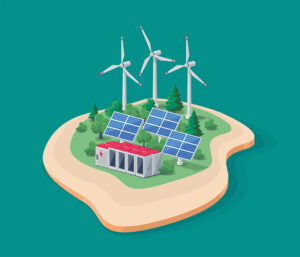
Tuesday, 26 November, 2024
Exploring microgrids in the Australian context – Battery Storage and Grid Integration Program
Forum: ANU Centre for Energy Systems (ACES) seminar
Insights and learnings from our microgrid project will be revealed at this online forum.

Tuesday, 8 October, 2024
Multi-objective planning of community energy storage systems under uncertainty
Forum: ANU Centre for Energy Systems (ACES) seminar
This talk explores how a multi-objective stochastic optimization framework can help decision makers such as utilities, energy regulators, and community leaders identify the trade-offs between competing objectives, and thereby benefit all stakeholders equitably.
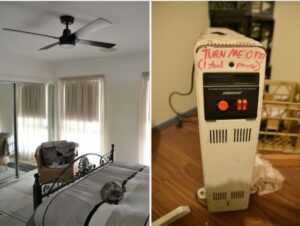
Thursday, 17 October, 2024
Forum: ANU Centre for Energy Systems (ACES) seminar
Drawing on ethnographic research with 30 Australian households, this article argues that in order for the sector to both understand and better guide patterns of domestic energy use we need to decentre energy feedback, and instead refocus attention on the non-energy data that informs everyday practices.

Tuesday, 2 July, 2024
Forum: BSGIP online seminar
This talk presents internal efficiency measurements of some of the typical EVs used in New Zealand with emphasis on maximum charge power transfer against selected AC and DC fast chargers.
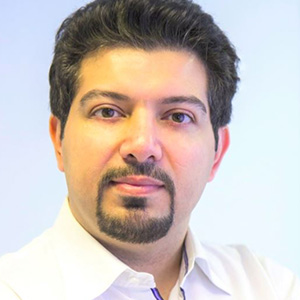
Tuesday, 4 June, 2024
Insights into market regulations: multi-agent energy system modelling
Forum: BSGIP online seminar
In the dynamic landscape of modern energy markets, the integration of advanced technologies and the evolving role of active citizens shape the trajectory of future energy systems. This talk explores the synergy between smart city concepts and decentralized energy systems, emphasizing the pivotal role of multi-agent energy system modelling in understanding market regulations and structure.
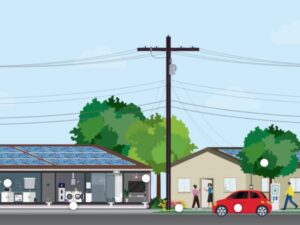
Tuesday, 7 May, 2024
Neighbourhood retrofit paves way for a just, decarbonised future
Forum: BSGIP online seminar
Ecoblock is an ambitious research, development and demonstration project that brings together an impressive array of leading experts in the fields of energy and water research, along with pioneering engineers, architects, designers, government officials, business professionals and community members. Find out more.
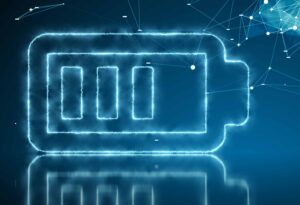
Tuesday, 26 March, 2024
Pushing the envelope: latest research from tech trial revealed
Forum: BSGIP webinar
Research findings from our latest collaboration with the electricity industry, to safely and cost effectively allow more renewables to enter the grid, will be revealed at this online forum.
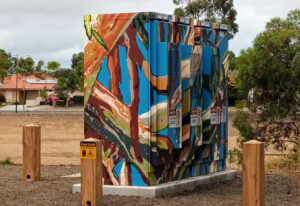
Wednesday, 29 November, 2023
The 2nd Future of Neighbourhood Batteries in Australia conference
Forum: BSGIP Conference
The conference will feature speakers from across Australia with sessions on the latest neighbourhood battery research, industry case studies, a government panel discussion and an opportunity to workshop the future of neighbourhood batteries.
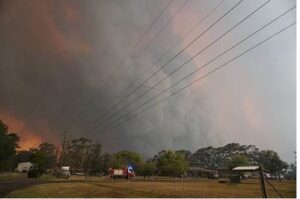
Tuesday, 14 November, 2023
Forum: BSGIP online seminar
This seminar presents learnings from the recent interdisciplinary ‘ESKIES’ project funded by the NSW Bushfire Community Recovery and Resilience Fund in the wake of the Black Summer bushfires of 2019-2020.
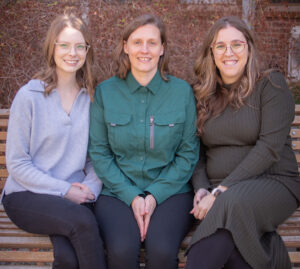
Tuesday, 31 November, 2023
Bioinspired separation systems mimicking plant membrane functions
Forum: BSGIP online seminar
Latest research on separation technologies to isolate valuable target molecules from industrial wastewater. Examples of molecules relevant to battery and storage grid applications that could potentially be separated from liquid wastes in the future might include borate, cobalt, copper, nickel, phosphorus, lithium, potassium, sodium and zinc.
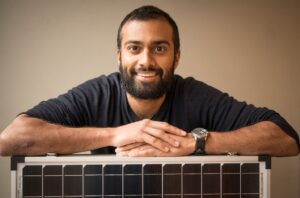
Tuesday 17 October, 2023
Distributed Energy Resources and fairness
Forum: BSGIP seminar
Guest speaker Nij Lal, Principal, AEMO, will discuss how the social contract for connecting to the grid must evolve beyond the pay-plug-play expectations of electricity from the 19th Century, to a two-way agreement that is fair for both solar (and EV) owners and non-owners as the system transitions to higher penetrations of distributed energy resources (DER).
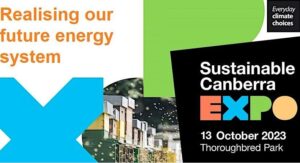
2.30 – 3.30pm, Friday, 13 October, 2023
Realising our future energy system
Forum: Sustainable Canberra Expo
What’s over the horizon for our homes, neighbourhoods, cities and systems as we work to decarbonise how we live and work globally? Hear from Lachlan Blackhall, Alix Ziebell and Heather Logie as they share some of the latest research, development and demonstration initiatives working towards a future energy system that is just, decarbonised, resilient and for the benefit of all. Register here.
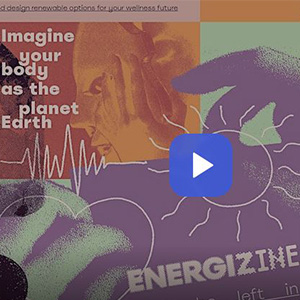
Friday 18 August, 2023
EnergiZine: nuturing energy transitions @Questacon
Immerse yourself in an absurd sunset ritual, where you’ll curate and create your own unique wellness zine for energy transition options.
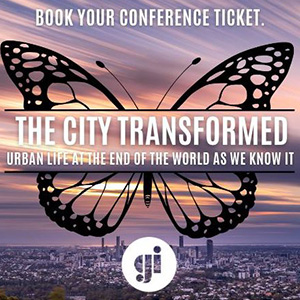
Friday 18 and Saturday 19 August, 2023
The City Transformed: Urban life at the end of the world as we know it
Forum: Green Institute Conference 2023. Meanjin/Brisbane and online.
Speakers: Including BSGIP’s Kathryn Lucas-Healey and Wendy Russell
Their talk is ‘Transforming Energy Systems: caring beyond the local’.
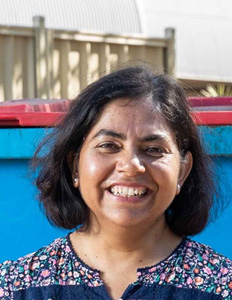
10 – 11 am, Tuesday, 8 August, 2023
What a waste! Where do solar panels go to die?
Forum: BSGIP online seminar
Speakers: Dr Deepika Mathur, Senior Research Fellow, Northern Institute, Charles Darwin University
This seminar presents research on understanding why solar panels in Australia’s Northern Territory are being removed and how they are disposed.
Watch the recording here.

10 – 11 am, Tuesday, 25 July, 2023
NSW Renewable Energy Zones First Nations Guidelines and case studies
Forum: BSGIP online seminar
Speakers: Michael Frangos, Indigenous Energy Australia and Chris Briggs, Institute for Sustainable Futures, University of Technology
The NSW Renewable Energy Zones (REZ) First Nations Guidelines, aim to contribute to a clear purpose of ensuring that First Nations communities through the five REZs gain appropriate benefit from the once in several generation developments.
Watch the recording here.

2 – 3 pm, Monday, 3 July, 2023
Designing the energy system with people: a new social contract?
Forum: BSGIP webinar
Speakers: Laura Jones, Brenda Martin, Pip Watson
It is clear the energy system is changing. People are installing rooftop solar, batteries, and electric vehicles at an increasing rate. In response, the energy system is undertaking major reforms. But the question remains: How should people be involved in the development of these reforms?
Watch the recording here.
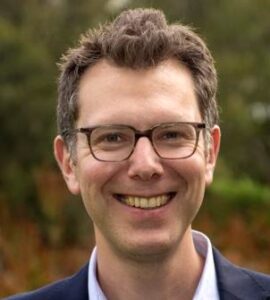
2 – 3 pm, Tuesday 30 May 2023
Net Zero Precincts: experimenting with transition through everyday experiences
Forum: BSGIP online seminar series
Speaker: Dr Darren Sharp, Senior Research Fellow, Monash Sustainable Development Institute
This talk will discuss Net Zero Precincts, a four-year Australian Research Council (ARC) Linkage project that brings together two key areas of research for the first time — transition management and design anthropology.
Watch the recording here.
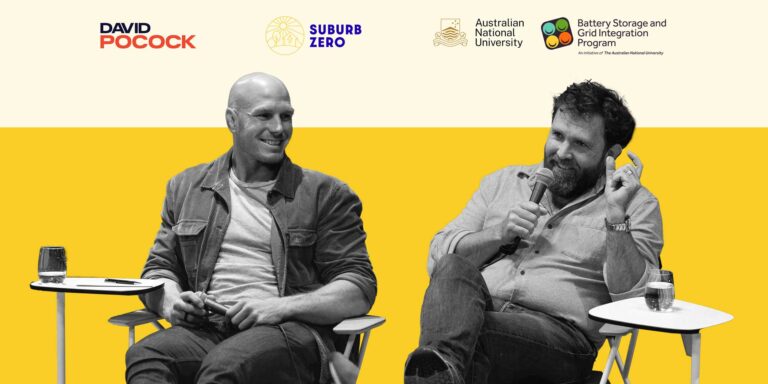
5.30 – 7.30 pm, Friday, 21 April, 2023
Speakers: Senator David Pocock, inventor and author Saul Griffith, Prof Lachlan Blackhall, Sarah Reid & Jon Sibley.
Join ACT Senator David Pocock, inventor and author Saul Griffith, and a panel of experts as we discuss a new initiative to electrify Canberra.
Watch the recording here.
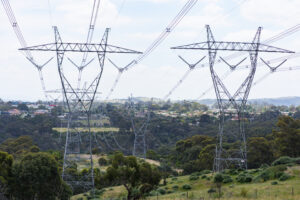
2 – 3 pm (AEST), Tuesday, 4 April, 2023
Electricity market modelling: NSW roadmap policy & role of the consumer trustee
Speakers: Jin Han Lim, Senior Analyst, AEMO and Shira Samocha, Modelling Manager, AEMO Services Ltd.
Watch the recording here.

2 – 3 pm (AEDT), Tuesday, 21 March, 2023
RouteZero: a web application tool for assessing electric bus feasibility
Speaker: Johannes Hendriks, data scientist
This talk describes RouteZero, a web application tool for assessing electric bus feasibility, and some key knowledge sharing insights that came out of its creation.
Watch the recording here.

9.30 am – 4.30 pm (AEDT), Wednesday, 28 November, 2023
Conference: The future of neighbourhood batteries in Australia
Energy experts from across Australia will converge to consider national approaches to this nascent technology.
This one-day, invitation only event will bring together key players across industry, academia and government to outline actions required of different sectors to ensure this form of technology has a positive impact.
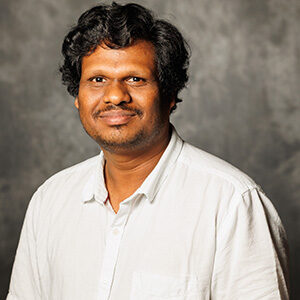
11 – 12 pm (AEDT), Tuesday, 1 November, 2022
Optimised EV fast charging: fourfold increase in battery life
Speaker: Vallabha Rao Rikka, Postdoctoral Researcher, Electrochemical Safety Research Institute (ESRI), Underwriters Laboratories, USA
In recent years, fast charging for electric vehicle applications has been a topic of immense importance among battery researchers. This arises from the need to address people’s anxiety of EV driving range while ensuring good performance and safety of Lithium-ion batteries. However, fast charging involves a high current, which increases the cell temperature and ultimately leads to capacity loss of the battery.
Watch the recording here.
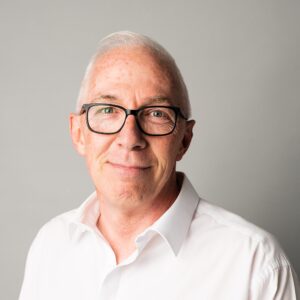
2 – 3pm (AEDT), Tuesday, 18 October, 2022
*RESCHEDULED* Integrating Distributed Energy Resources in remote Western Australia: a case study
Speaker: David Edwards, Future Technology and Innovation Manager at Horizon Power
This presentation will provide insights into distributed energy resources trials in the remote town of Carnavon, WA, and the investigated technical solutions to overcome the barriers to electricity consumers installing DER and connecting them to the network.
Watch the recording here.
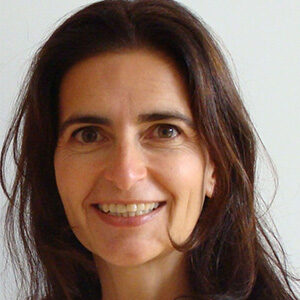
2- 3pm (AEST), Tuesday, 4 October, 2022
Residential energy efficiency, health & equity in Australia
Speaker: Nicola Willand, Senior Lecturer, School of Property, Construction and Project Management, RMIT University
Nicola will draw on her PhD, which evaluated a residential energy efficiency improvement trial, and her more current work on energy justice and holistic approaches to tackle energy vulnerability through cross-disciplinary collaborations.
To watch the recording here.
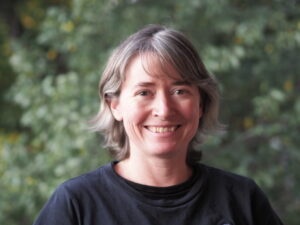
2 – 3pm (AEST), Tuesday, 28 June, 2022
Who cares? How care practices uphold the decentralised energy order
Speaker: Dr Kathryn Lucas-Healey, Research Fellow, Battery Storage and Grid Integration Program
This talk will centre on a new paper, jointly authored by Kat and BSGIP colleagues and soon to be published in a special edition of Buildings and Cities journal, about gender and new energy technologies.
Watch the recording here.

4 – 5.30pm (AEST), Thursday 16 June, 2022
Energy Conversations: A clean transport strategy for the ACT
Speakers: Jo Clay MLA, Bjorn Sturmberg, Yuan Peng & Bede Doherty
Expert speakers offer their analysis on the latest developments in clean transport including electric vehicles, charging in the ACT and surrounds, increasing the uptake of active and public transport, and transport challenges in sprawling cities like Canberra.
Hosted by the Australian Institute of Energy and the ANU Institute for Climate, Energy & Disaster Solutions.
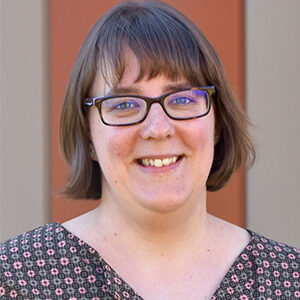
2 – 3pm (AEST), Tuesday 14 June, 2022
Governing just energy transitions in the Asia Pacific
Speaker: Sara Fuller, Associate Professor, School of Social Sciences, Macquarie University
This talk will explore how the specific historical, political, economic, and social dynamics of the Asia Pacific region shape how we understand the governance of urban energy transitions across the region and considers how questions of justice and equity come to matter in such debates. Drawing on interviews and desktop analysis, the talk will explore two case studies: first, the role of intermediary actors in the roll out of battery storage in the ACT and second, the potential for collaboration in reaching carbon targets in Hong Kong.
Watch the recording here.
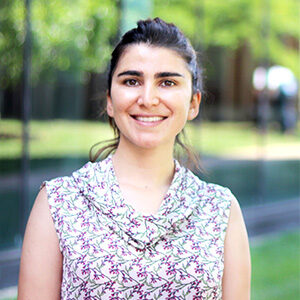
10 am (AEST), Wednesday 1 June, 2022
Distributed generation capacity assessment in electricity distribution systems
Speaker: Masoume Mahmoodi, PhD candidate, ANU.
This PhD presentation will discuss the effectiveness of the response from available control devices in improving networks’ distribution generation capacity; 2) different techniques employed for decision making under uncertainty and 3) exploring two distributed techniques.

12 – 1 pm (AEST), Thursday, 28 April, 2022
Converge: enabling greater integration of rooftop solar into the grid
Speakers: Shane Rattenbury, Minister for Water, Energy and Emissions Reduction, ACT and a panel of experts.
Converge is an exciting new project, based in the ACT, that will explore new ways to utilise smart software, rather than building more poles and wires. Essentially allowing greater penetration of renewable energy into the National Electricity Market.
Watch the recording here.
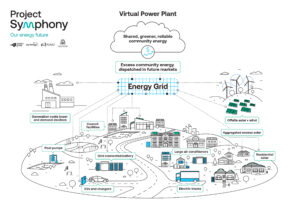
12 – 3 pm (AEST), Tuesday, 19 April, 2022
Project Symphony – our energy future
Speaker: Andrew Blaver, Project Manager, Project Symphony, Western Power
Project Symphony is an innovative project, based in Western Australia, where customer DER like rooftop solar, batteries and selected household appliances will be orchestrated as a Virtual Power Plant (VPP) to address these challenges.
Watch the recording here.
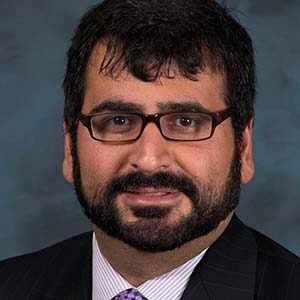
10 – 11 am (AEDT), Tuesday, 29 March, 2022
Assessing the resource-adequacy contribution of energy storage
Speaker: Professor Ramteen Sioshansi, Ohio State University
Energy storage is being viewed increasingly as a resource that can contribute to power-system reliability and resource adequacy. However, most markets and system planners employ ad hoc approaches to ascribing capacity value to energy storage. This talk presents a dynamic-programming-based approach to conduct these assessments for energy storage. Illustrative case studies show how market-design choices impact the use and operation of energy storage and its reliability contribution.
Watch the recording here.

9 – 10 am (AEDT), Tuesday, 1 March, 2022
Speaker: Lindsey McDougall, Utility Strategist, EV & Emerging Technologies, Austin Energy
Austin Energy, a publicly owned utility in Austin, Texas, offers a unique and broad approach to electric vehicle (EV) programs and initiatives. Lindsey McDougall will present the history of the utility with a focus on local government ownership and its influence on EV strategy.
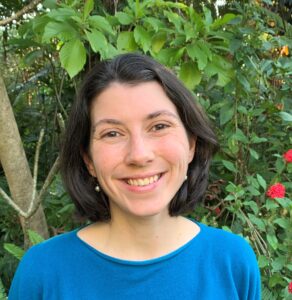
2 – 3 pm, 23 November, 2021
Project MATCH: Power system security with high levels of DER
Speaker: Naomi Stringer, University of New South Wales
Australia is leading the world in the deployment of Distributed Energy Resources (DER) and particularly Distributed Photovoltaic systems (DPS). As DER deployment continues, new challenges and opportunities are emerging for managing power system security during major disturbance events. Data driven understanding of DER behaviour in the field is becoming increasingly important to validate modelling and support operational decision making.
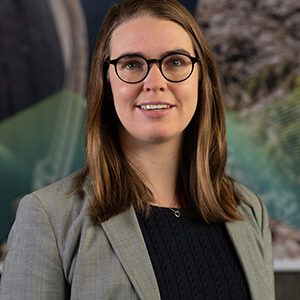
3 – 4 pm, 26 October, 2021
Modelling hydropower operation in the NEM
Speaker: Pippa Williams, Hydro Tasmania
Modelling hydropower is complex compared to other energy sources due to the deep interdependence between operating decisions at different points in time, as well as the interdependence between different hydropower stations along the same river (or cascade). This presentation will discuss the factors required to accurately model hydropower operation in the NEM, and introduce some of the common modelling techniques. Many of these lessons are transferrable to emerging storage technologies.
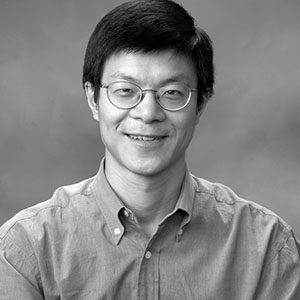
11 – 12 pm, 16 September, 2021
Optimal power flow for distribution systems
Speaker: Professor Steven Low, California Institute of Technology, USA
Hosted by the IEEE, Young Professionals Australian Capital Territory Section
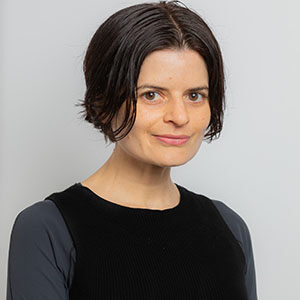
2 – 3 pm, 14 September, 2021
Trading, optimisation, and investment: strategies to maximise revenues and protect investments
Speaker: Sarah Paparo, Principal Consultant, Renewable Energy Hub
Contracting arrangements are necessary to underpin the transition to clean energy and broader decarbonisation. The scope for project developers and industry to secure appropriate contract arrangements will have a direct bearing on the cost, timeframe, and effectiveness of system-wide transition.
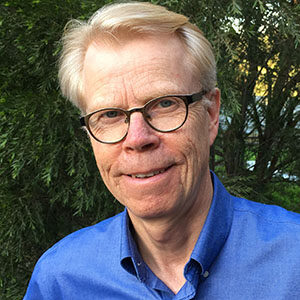
2 – 3 pm, 31 August 2021
Community batteries: the new kid on the block
Speaker: Chris Wallin, Yarra Energy Foundation
After an introduction of the Melbourne Solar Sponge project and YEF’s partnership with Citipower and BSGIP, Chris will explain why shared energy storage is such a great idea and reveal the opportunities it unlocks.
Chris Wallin’s slide deck. Listen to the audio here:
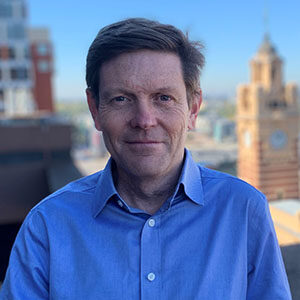
2 – 3 pm, 3 August 2021
Speaker: Bruce Mountain, Director, Victoria Energy Policy Centre, Victoria University
This two-part seminar will present recent work that critiques evidence of the relationship between rooftop solar and household wealth and, in the second part, discusses possible economic reasoning for and against local use of system charges for neighbourhood batteries.
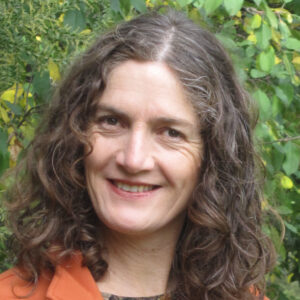
2 – 2:50 pm, 20 July 2021
Speaker: Wendy Russell, Visiting Fellow, Centre for the Public Awareness of Science ANU, and Director, Double Arrow Consulting, Canberra
Socio-technical integration is an important aspect of responsible innovation. By understanding how technical dimensions of innovation processes are entwined with social dimensions, researchers can increase their capacity to be reflexive about their roles and responsibilities in innovation, better anticipate innovation directions and consequences, and more fully engage and be responsive to stakeholders, users and publics.
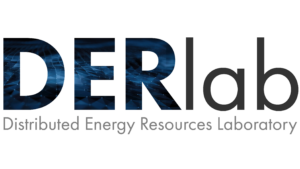
12 – 1:00 pm, 13 July 2021
CANCELLED: New lab replicates electricity grid
Distributed Energy Resources Laboratory launch event
Andrew Barr, Chief Minister for the ACT, will officially open a new facility at ANU, heralding in a new age in the energy transition.
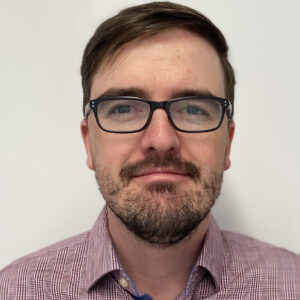
1 – 2:00 pm, 18 June 2021
Power flow optimisation with phase unbalance: mathematical models and implementation
Speaker: Frederik Geth, Newcastle, CSIRO Energy Centre
Phase unbalance is a phenomenon in three-phase power networks that relates to voltages (or currents) magnitudes being unequal between phases, and the phase angles not being off-set by 120 degrees. Phase unbalance implies inefficient use of the network’s power transfer capabilities, as well as increased network losses. In a power distribution context, phase unbalance is represented as part of the constraints. In this context, Frederik Geth will talk about the physics of phase unbalance, and how it is translated to sets of mathematical equations that can be solved at scale by off-the-shelf nonlinear optimisation solvers.
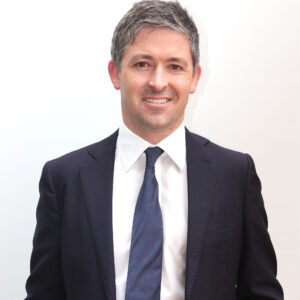
2 – 3:00 pm, 8 June 2021
The Zero Emission City – Climate and Energy Policy in the Australian Capital Territory
Speaker: Daniel Harding,
Planning and Sustainable Development Directorate, ACT Government
The ACT Government continues to implement world-leading climate change and energy policies, on its pathway to net zero emissions by 2045 at the latest. This presentation will discuss ACT climate change and energy policy and the oftentimes challenging but always interesting process of public policy development.
Watch the recording here by entering the password: c7CG*v!Qfj3e

10 – 11:00 am, 25 May 2021
Vehicle-grid integration and women: a review of EV gender trends in the U.S.
Speaker: Erika Myers, World Resources Institute (WRI), Ross Centre for Sustainable Cities, USA
This presentation will provide an overview of the U.S. trends in vehicle-grid integration (VGI) and a troubling gender discrepancy for electric vehicle (EV) purchasing patterns and VGI enrolment. Women purchase more than 50 percent of all new cars in the U.S. but only represent 30 percent of the EV purchasing demographics. This trend also has an adverse impact on VGI programs.
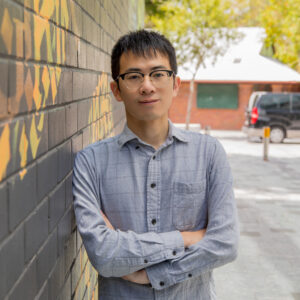
2 – 2:50 pm, 11 May 2021
In situ transmission electron microscopy for energy storage and optoelectronic applications
Speaker: Chao Zhang, Faculty of Science, School of Chemistry & Physics, Queensland University of Technology
In situ transmission electron microscopy (TEM) is one of the most powerful approaches for revealing physical and chemical process dynamics at high resolutions. This seminar summarises the most recent developments on in situ TEM techniques; in particular, how they are able to visualise various events, measure properties and solve problems in the field of energy, by revealing detailed mechanisms at the nanoscale. The related applications include use of rechargeable batteries such as lithium-ion, sodium-ion and potassium-ion, to store the energy generated by photovoltaics.
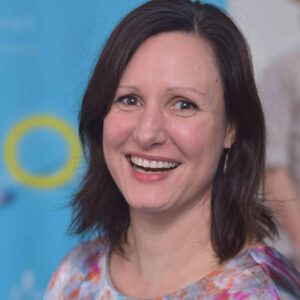
2 – 2:50 pm, 13 April 2021
Community-scale energy storage: the Enova story
Speaker: Felicity Stenning, Enova Community Energy Ltd.
Enova is pioneering a community battery in Kurri Kurri, Newcastle designed to bring energy resilience to rural communities. It will encourage more rooftop solar uptake, by providing battery storage for the excess renewable energy generated. It will also provide the basis for increased usage of midday solar via a peer-to-peer trading scheme between the 500 participants (with and without solar), and the battery.
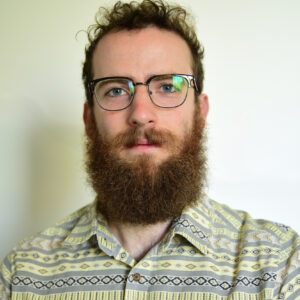
2 – 2:50 pm, 30 March 2021
Speaker: Rex Martin, Monash University
In renewables-based grids it is increasingly important for energy demand to follow supply. Sector visions of flexibility, typically involve householders’ use of distributed energy resources to shift and shed energy consumption, so that demand aligns with renewable generation. But flexibility can also be understood in other terms: as the dynamic and diverse ways in which real people live everyday life, and in the process consume energy.
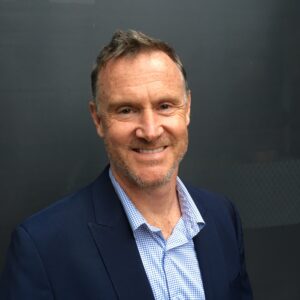
11 – 11:50 am, 19 March 2021
Distribution System Operator – one element of the future ‘modular network’ potential
Speaker: Gavin Morrison, Essential Energy
This presentation will focus on the challenges in driving capability uplift in a non-metropolitan network supporting regional, rural and remote customers, and spanning every climatic condition across NSW – ranging from coastal and arid, to alpine conditions. The discussion will also refer to the Essential Network battery trial and aspects of the intended Distribution System Operator (DSO) implementation.

10am – 11am, 3 March 2021
Energy trading in the National Electricity Market
Speaker: Jason Hoon, Energy Australia
An overview of electricity wholesale trading in the National Electricity Market from physical to financial, and detailing some of the tools and considerations traders utilise to manage risk in their portfolios.
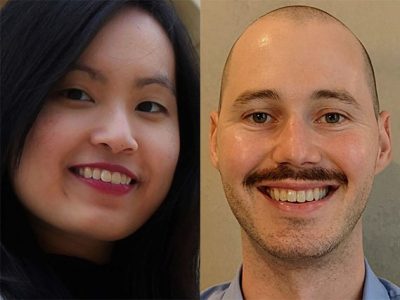
2 – 3pm, 2 March 2021
Speakers: Daena Ho and Mark Thompson, Australian Energy Market Operator (AEMO)
Australia’s world-leading uptake of distributed energy resources (DER), particularly distributed photovoltaics (DPV), present new challenges in operating the power system. Declining minimum demand levels, along with sudden disconnection of DPV generation during voltage or frequency disturbances, are critical challenges for operational and emergency response services in some regions of the National Electricity Market (NEM). To continue integrating high levels of DER, the Australian Energy Market Operator (AEMO) is delivering a program of work to address these challenges.
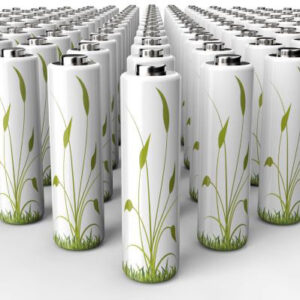
12 – 1pm, 16 February 2021
Battery Lab launch: advancing research in lithium-ion & sustainable, next gen batteries
Speakers: Professor Lachlan Blackhall, Professor Keith Nugent, Associate Professor Alexey Glushenkov and panel members
A new world-class facility located at The Australian National University is set to research lithium-ion batteries, optimising their enabling materials, providing characterisation, and testing and assessing recycling and reuse options. The facility will also investigate other sustainable batteries.
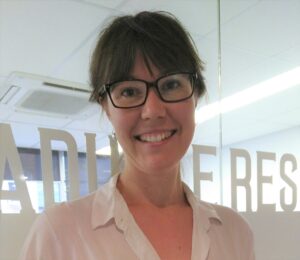
2 – 2:50 pm, 1 December 2020
Household energy users’ willingness to participate in a PV and battery storage Virtual Power Plant
Speaker: Sophie Adams, School of Humanities and Languages, UNSW
Virtual Power Plants appear to hold a lot of promise as a way to access the value of expanding household generation and storage capacity in Australia, and to address various challenges in the electricity sector. However, despite the quickly growing market in VPP offerings, little is known about whether Australian households are willing to participate, under which conditions, and why. This seminar will explore such findings, and also a VPP simulation study by solar monitoring service provider Solar Analytics, and the University of New South Wales.

2 – 2:50 pm, 17 November 2020
Research on distribution power networks with high solar PV penetration
Speaker: Feifei Bai, School of Information Technology and Electrical Engineering, University of Queensland
Utility-scale photovoltaic (PV) plants in remote areas are drastically increasing due to abundant and low-priced land. These remote areas are usually connected to zone substations through long weak feeders with open-delta step voltage regulators (SVRs), installed in the middle to regulate downstream voltages. However, distribution grids in such areas traditionally have feeders with low X/R ratios, which makes the independent reactive power compensation method less effective on voltage regulation. Consequently, upstream SVR may suffer from excessive tap operations with PV-induced fast voltage fluctuations. Although a battery energy storage system (BESS) can successfully smooth PV generation, frequent charge/discharge will substantially affect its cost-effectiveness.
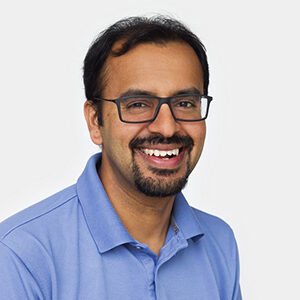
2 – 3 pm, 3 November 2020
Atomic scale changes and its impact on battery performance
Speaker: Neeraj Sharma, Associate Professor and ARC Future Fellow, School of Chemistry, UNSW
A large proportion of the function of batteries arises from the electrodes, and these are in turn mediated by the atomic-scale perturbations during an electrochemical process. A method to both understand battery function and improve their performance, is to probe the atomic scale evolution operando. The result is an atomic level “video” of device function which can be directly correlated to performance parameters such as energy density, lifetime (or degradation), rate capability and safety. This talk will emphasize the opportunities between atomic scale insight and application.
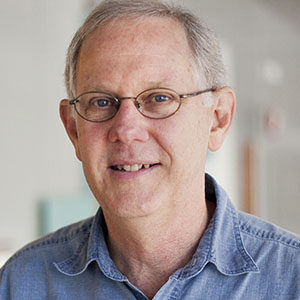
12:00 noon – 1:00 pm, 20 October 2020
Optimal capacity design and operation of energy hub systems
Speaker: Ian Hiskens, Department of Electrical Engineering and Computer Science, University of Michigan, Ann Arbor
The seminar will present an integrated view of optimized capacity design and operation, of islanded energy hubs. We consider energy hubs that incorporate emerging distributed energy resources as well as energy storage devices, and fully support the electricity and heat demand of an islanded installation.
Watch the recording here by entering the password: uL*3m^zVLxR6
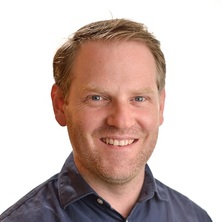
2 – 2:50pm, 6 October 2020
Fairness in distribution network management and cost allocation
Speaker: Archie Chapman, School of IT and Electrical Engineering, University of Queensland
The rapid rise of PV installations in distribution networks where network capacity is already fully exploited, has triggered some detrimental impacts on the network operation and other customers. These effects risk being replicated with the growth of other customer-owned distributed energy resources (DER), such as residential batteries and electric vehicles. For this reason, distribution network service providers (DNSP) have begun to mandate connection codes, such as inverter Volt/Var control (VVC) and/or PV active power curtailment (APC), to mitigate the resulting network problems.

11am – 12 pm, 7 October 2020
Solar, batteries and virtual power plants: Australia’s distributed energy future
Speaker: Alan Reid, Reposit Power
This event, hosted by the IEEE Young Professionals Australian Capital Territory Section, will examine the technical challenges faced by the electricity distribution system, and the advances in generation and storage technology. It will investigate the implications upon electricity network governance and ultimately seek to answer the question: how can we maintain electricity grid resiliency when confronted with the rise of the prosumer and electricity decentralisation?
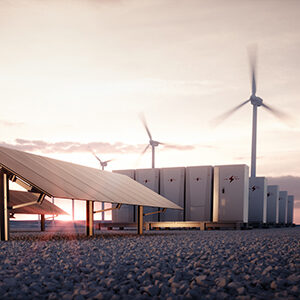
12 – 1 pm, 10 September 2020
Householder perspectives on community batteries
Speakers: Hedda Ransan-Cooper, Research Leader, ANU Battery Storage and Grid Integration Program and Jaryd Revere, Program Manager, Horizon Power.
Australian National University researchers spoke with more than 50 householders across Australia to explore their perspectives on the concept of a shared battery as part of ARENA funded research on local energy models.
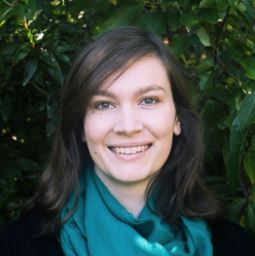
2 – 3 pm, 8 September 2020
Adapting to a changing energy sector: Australia’s new regulatory sandbox framework
Speaker: Olivia Boyd, Assistant Director, New Markets and Innovation, Australian Energy Regulator
Regulatory sandboxing is a new approach to facilitating experimentation and reform in the context of a rapidly changing energy market. This presentation will provide an introduction to the design of regulatory sandboxing in the NEM, what factors have shaped the design of the sandbox framework so far, and what lies ahead in terms of implementing the framework.
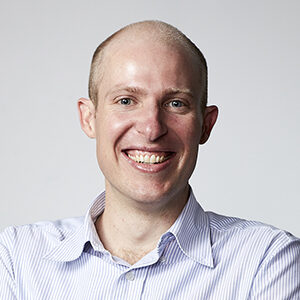
12 – 1pm, 26 August 2020
The decarbonised, decentralised and democratised grid
Speakers: Lachlan Blackhall, Head of the Battery Storage and Grid Integration Program
This talk will address how global energy systems are currently undergoing substantial change. This is being driven by a number of factors. This talk is part of the ANU College of Engineering and Computer Sciences seminar series.

12 – 12.50 pm, 25 August 2020
Evolving the grid: smart orchestration for 21st century electricity systems
Speakers: Lachlan Blackhall, Andrew Fraser, Hedda Ransan-Cooper, Bill Tarlinton, Ben Weise and Gabrielle Kuiper
Research and development is underway to develop sophisticated ways to ‘evolve the grid’ to allow for increasing amounts of solar PV, battery storage and electric vehicles to participate in the electricity system.
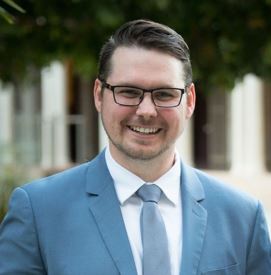
2 – 2.50 pm, 28 July 2020
Zero emission buses: an examination of electric and hydrogen options
By Dr Jake Whitehead, Advnce Qld Industry Research Fellow, School of Chemical Engineering, Faculty of Engineering, Architecture and Information Technology
The University of Queensland is leading a number of research projects focussed on examining the future of heavy vehicles. This presentation will focus specifically on the deployment of zero emission buses including battery electric buses and hydrogen fuel cell buses in the Australian context.
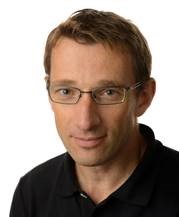
2 – 2.50 pm, 14 July 2020
Towards a transactive energy system for integration of small-scale distributed energy resources
By Associate Professor Gregor Verbič, Centre for Future Energy Networks, School of Electrical & Information Engineering, Faculty of Engineering, The University of Sydney
This talk will discuss approaches for facilitating the integration of small-scale distributed energy resources (DER) into low- and medium-voltage networks, in the context of the emerging transactive energy concept.
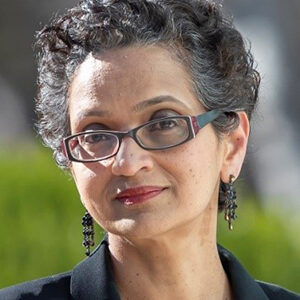
2 – 2.50 pm, 30 June 2020
Framing the nexus between renewable energy and resource extraction
By Associate Professor Sujatha Raman, Director of Research at the Australian National Centre for the Public Awareness of Science (CPAS)
In this talk, I want to engage the audience in conversation about different lenses through which we might understand and research the material underpinnings of renewable energy technologies.
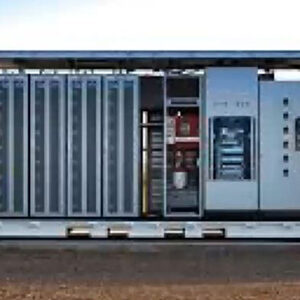
10 – 11.30am, 18 June 2020
Community-scale batteries: regulatory reform options
Presented by ANU Battery Storage and Grid Integration Program, Ausgrid and Total Environment Centre
Watch the full webinar here and enter the password: StjjUu^X51Kf
To watch the recorded presentation by Marnie Shaw, Battery Storage and Grid Integration Program, ANU click here.
To watch the recorded presentation by John Skinner, Ausgrid click here.

2 – 2.50 pm, 16 June 2020
Optimal power flow reformulations for secure integration of renewables
By Dr Maria Vrakopoulou, lecturer in power systems, University of Melbourne.
The increasing penetration of renewables and distributed energy resources across the power system is increasing the system uncertainty and hence operational challenges are introduced. The transmission system operator faces every day a decision-making problem with regards to many controllable set-points in the network.
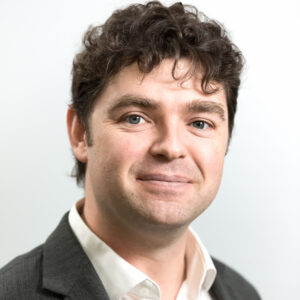
2 – 3 pm, 2 June 2020
Tasmania’s role in the national energy market transformation
By Cameron Potter, Manager, Strategic Market Analysis, Battery of the Nation, Hydro Tasmania.
By the late 2020s, wind and solar generators are expected to supply nearly half of our grid’s total energy consumption and at times, this could be as high as 75 per cent. Deep (long duration) storages, and the flexibility they bring, are an effective solution to help balance the energy mix, increasing the reliability, security and affordability of Australia’s grid.

11 – 11.50 am, 19 May 2020
Open, Data-Driven Tools for Smart EV Charging
By Zachary Lee, Resnick Sustainability Institute Fellow, California Institute of Technology, Pasadena, USA
The safe and affordable integration of millions of electric vehicles (EVs) into the grid will require advanced scheduling algorithms as well as techniques to optimize charging facilities. However, a lack of data, simulation environments and physical testbeds have hampered research in these areas.

2 – 3 pm, 5 May 2020
A gas fired recovery? Hy-Trojan. Is hydrogen the next clean coal?
By Tom Swann, Senior Researcher for the Climate and Energy Program at The Australia Institute
Pre-pandemic research on Australian government attempts to promote fossil fuel consumption and the rush to develop Australia’s hydrogen industry based on export opportunities, especially to Japan and Korea, which have been vastly overstated by comparison with Japanese and Korean targets.
